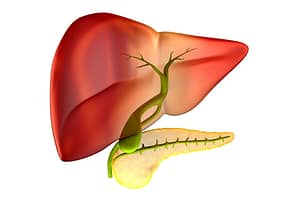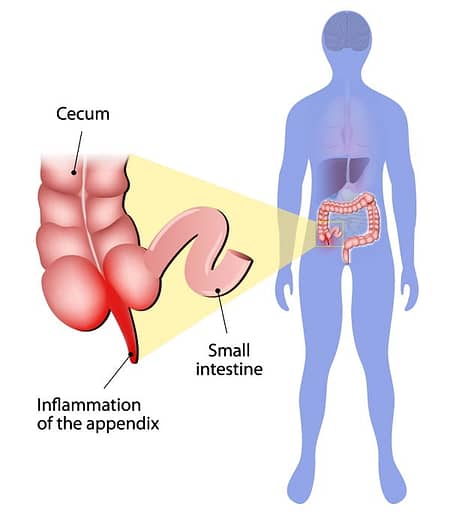
What is croup cough?
Croup is a pediatric illness which affects the respiratory organs of young children. It is medically known as laryngotracheobronchitis. It is the most common condition in children which generally affects trachea, larynx or bronchi.
Croup is a viral disease which is characterized by difficulty in breathing accompanied by a bad cough which resembles the sound of a barking seal.
It occurs in at least 5% of children between the ages of 6 month to 3 years. Adults are rarely affected by croup. This illness is commonly found in boys more than girls.
Croup is a contagious illness which spreads due to airborne sneezes or coughs by infected children. The symptoms can develop within 2 to 3 days as soon as the child inhales the infected air.
What are the causes of croup?
Croup is generally caused by a wide range of virus. The most common viruses that cause croup are parainfluenza, influenza, etc. These viruses are also the cause of influenza or common cold.
When a child breathes, the virus present in the air attacks the respiratory organs and leads to the swelling of the trachea and larynx. The virus initially infects the throat and the nose but it soon spreads in the upper respiratory tract and the trachea.
Some other viruses responsible for causing the illness are respiratory syncytial virus or RSV, adenovirus, etc.
Croup is also caused due to bacteria but this situation is very rarely seen. Some common bacteria involved in this infection are Hemophillus influenzae, staphylococcus aureus. On the basis of causes, croup is divided into two types:
Types of croup
Various types of croup are:
Viral croup
Viral croup is usually caused by such viruses which infect the larynx and trachea. Parainfluenza is the most common virus which causes croup. The initial symptom of viral croup is common influenza but as soon as the condition worsens, a barky cough can be easily noticed. The child can also suffer from fever.
Spasmodic croup
Spasmodic croup occurs suddenly, usually in the midnight. The infected child might wake up due to shortness of breath. He or she may also experience barky cough, have stridor, etc.
Fever is not a common symptom in spasmodic croup.
What are the symptoms of croup?
The first visible symptom of croup is common cold, runny nose or fever. As the infection progresses, the child may suffer from many other croup symptoms such as:
- Barking cough
- Hoarse voice
- Heavy breathing
- Difficulty in swallowing
- Blue or gray skin coloration around mouth, nose, fingernails, etc.
- A sore throat
- Red eyes
- Poor appetite
- Runny nose
- Skin rashes
- Swollen lymph nodes
- Fever.
The signs and symptoms of croup normally become worse at night. They are visible for approximately 5 to 7 days. In severe cases, the symptoms of croup may extend up to 14 days.
The disease can range from mild to severe on the basis of its signs and symptoms.
Mild croup
In mild croup, the child may show symptoms such as barking cough without any blue skin coloration, etc. At this stage, the child may not experience stridor, which is commonly known as high pitched or noisy breathing.
As the illness progresses, the symptoms of croup may become severe, especially in the evening hours.
Moderate croup
In moderate croup, the child may suffer from stridor and retractions (sinking in of the skin near ribs). The child may also suffer from fever.
Severe croup
In severe case, the child is majorly affected by stridor and retractions. This involves sucking in or an inward movement of skin near the sternum or the back bone or skin between the ribs as the child faces difficulty in breathing. The infected child may also feel agitated, anxious, or fatigued.
How is croup diagnosed?
Like any other disease, croup diagnosis is done on the basis of signs and symptoms. It is commonly diagnosed by studying the physical attributes of the infection such as sound of cough, breathing quality, etc.
The doctor may also order some tests for the child to accurately perform the diagnosis of croup. Generally, a throat exam or an X-ray is performed to check the condition of the infected throat. Blood tests are not necessary for croup diagnosis.
Pulse oximeter is a skin sensor which is placed on the toe, finger, or ear. It is used to determine whether a child is receiving a proper amount of oxygen or not. The normal level should be above 95%.
What are the complications of croup?
The complications of croup are not very prominent. But in some cases, the child may suffer from certain complications. The most common croup complication observed is secondary infection. Secondary infection is usually accompanied with pneumonia.
Another possible croup complication can be dehydration.
In case of severity of croup, children are generally hospitalized. This particularly happens to premature children because their respiratory track is not fully developed.
Blockage of airways is also a possible croup complication. This is a life-threatening condition and is commonly known as respiratory distress. In this condition, the child breathes with the help of a ventilator.
Another possible complication of croup is the decreased amount of oxygen in a child’s body. In this case, the blue skin coloration is observed near the mouth which is known as cyanosis.
Croup Treatment: What are the treatment options for croup?
Croup can be very scary for both children and their parents. The child may suffer from breathing difficulties. The disease can be treated in home but the treatment of croup completely depends upon the severity of the disease. There are various ways by which a parent can treat his or her infected child.
Medications
There are certain types of pain medicines which are available for treating various symptoms of croup. Paracetamol and ibuprofen are medicines which help in treating pain. They are available in liquid form especially for children. Aspirin should be avoided for children under the age of 16 years.
Home treatment
In mild cases of croup, the children can be treated at home. There are many ways which can improve the child health.
Keep the child calm
Treatment of croup involves keeping the child calm and comfortable particularly at night. Croup results in the narrowing and inflamed of airways which makes it very difficult for the baby to breath properly. This may make him or her anxious and unstable. It is very important for the parents to keep their child calm in such cases.
Moisten the air
It is preferable to use cool-mist humidifier in order to make the dry air moisten. The moistened air helps the baby to get some relief from his cough.
Increase fluid intake
Dehydration is a common croup complication observed in children. It is very important to give proper fluids to the baby to maintain his or her fluid levels. Warm fluids can help in loosing mucus and reduce pressure on his or her vocal cords.
Keep the child’s head elevated
At night, it is important for the child to breath properly. Parents should put a pillow under the baby’s head in such a way that his or her head is a little elevated.
Treatment of croup depends on the severity of the disease and associated complications. Therefore, you should contact a health practitioner if your child suffers with it and shows initial signs of the disease.






